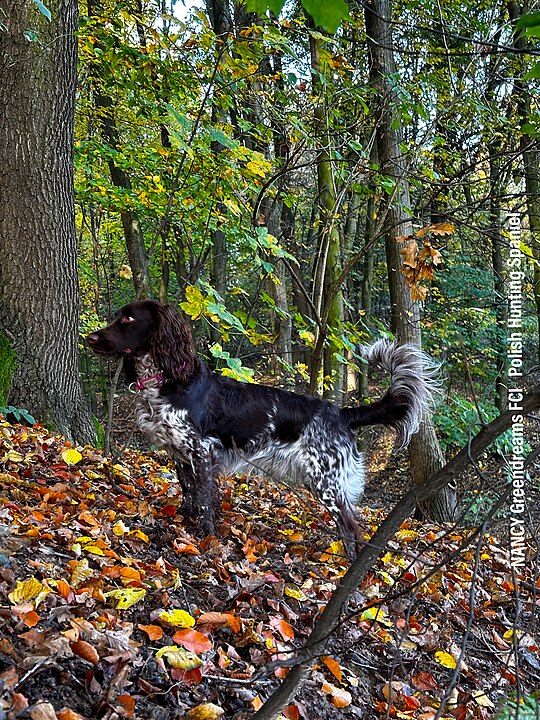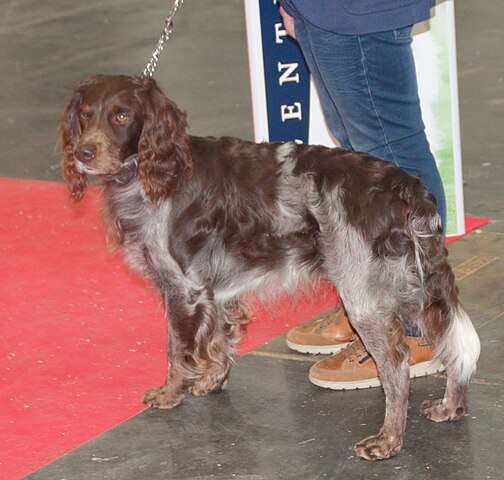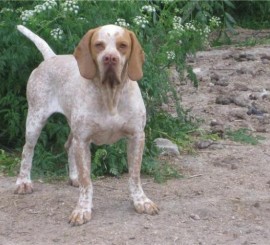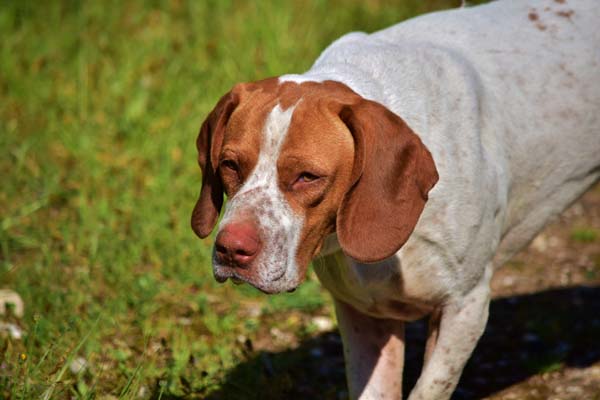The most unique features of the Curly-Coated Retriever are his small, crisp curls! This water-resistant coat separates him from his better-known retriever cousins. There is no undercoat in the breed – one feature which makes him easy to groom (he does shed, however). These large hunting dogs are both strong and agile – able to work tirelessly in the field each day. They make great hunting companions as well as fantastic family pets. Curlies are smart, confident and loyal. The breed is also trustworthy and reliable (assuming the owner puts in the work).
Like all retrievers, the Curly is very active and needs plenty of exercise each day. Swimming is a favorite pastime, but regular walks, jogs and hikes will also suffice. Obviously most Curlies would choose to hunt if they had the choice! If not given enough to do, they have the potential to become very destructive and noisy. Neither do they make good kennel dogs unless they are frequently invited to hunt – this is yet another breed that does much better when living indoors. Because of their very active nature, this breed is not normally recommended for first-time dog owners.
The Curly can be a destructive chewer when not given enough to do and can end up destroying anything that they can get their mouths onto! It is for this reason that they must be given plenty of outdoor exercise with their owner – running around a backyard will not cut it. This isn’t a lawn ornament, nor is it a couch potato content to sleep all day. Anyone who thinks otherwise risks their furniture and other possessions! Help your Curly beat boredom and reduce destructive chewing with the highly recommended Benebone – https://amzn.to/410F5TG
In addition to appropriate chew toys, exercise and regular obedience, most Curlies do best when given a job to do such as hunting, tracking or agility.
The Curly is generally an eager-to-please dog and can be trained in a wide variety of dog sports if the owner is so inclined. The breed is also intelligent and quick to learn, although some have a mischievous side that may come out from time to time – they can definitely have a sense of humor! Training should be positive and fun, but also firm yet fair. Ideally, Curlies should be started in training while they are still young because they take a while to mature. When training a Curly, mix it up with the lessons and keep things interesting – this breed can get bored if the “game” gets too easy.
The Curly-Coated Retriever should be friendly toward strangers and never shy, although some members of the breed can be slightly aloof. Many are also very sensitive when compared to Labs and Goldens – they might take an extra minute to “take it all in” when meeting a new person. A Curly that is acting overly shy was probably not socialized enough as a young puppy. Overall, however, this breed is not as demonstrative as other retriever breeds and instead, most are quietly affectionate. This said, there is variation in personalities and some Curlies can be quite boisterous and super-friendly.
The Curly-Coated Retriever is usually fantastic with children, although some adolescents may accidentally knock over a very small child. Young dogs who haven’t had enough training also tend to jump up a lot, making them not only bad matches for toddlers, but also the elderly. On the other hand, mature dogs are gentle and fun-loving with kids and often love to play with them.
Curly-Coated Retrievers make good watchdogs as they will alert to a knock on the door or a ringing doorbell. Some will even protect their families in a dangerous situation, although this is not the norm for every individual. Their true courage is most evident when they are hunting – these dogs will jump into any lake or bound into any brush without hesitation! They are not deterred by cold weather or even freezing water.

Affiliate Disclaimer
As an Amazon Associate, I earn from qualifying purchases. This means that if you click on an affiliate link on this site and make a purchase, I may earn a small commission at no additional cost to you. Rest assured that I only link to products I have used, or use on a regular basis, and trust enough to recommend them to you!



